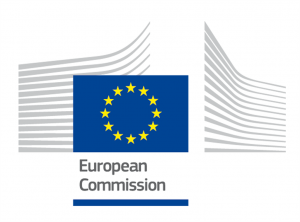About
MORE INFORMATION AT PROJECT WEBSITE
Link to Infravec2 Press Release, 27 Feb 2017
Infravec2 is an international and interdisciplinary research project funded by the European Commission Horizon 2020 Research Infrastructure Program (INFRAIA). Infravec2 studies insect vectors of human and animal disease, including mosquitoes, sandflies and other flies. Infravec2 is coordinated by the Institut Pasteur, Paris, France.
The overall objective of the Infravec2 project is to integrate key specialized research facilities necessary for research excellence in insect vector biology, to open the infrastructure for access by researchers, and to develop new vector control measures targeting the greatest threats to human health and animal industries. Insect vectors transmit parasitic diseases such as malaria and leishmaniasis, and viral infections such as chikungunya, dengue, Zika, Japanese encephalitis and yellow fever. The 24 consortium partners hold the major European biosecure insectaries for experimental infection and containment of insect vectors under Containment Level 2 and 3 (CL2/CL3) conditions, other key insect vector facilities, and include front-line field sites in Africa, the Pacific, and the Americas. Infravec2 will improve the exploitation of European vector infrastructures for research and public health, and will develop other innovative methodologies and technologies.
In the fall of 2015, we surveyed the European vector biology research community to determine the major resource gaps limiting European research on insect disease vectors. We analyzed the poll results, published them (https://www.ncbi.nlm.nih.gov/pubmed/27677378), and used the findings to design a proposal for funding to provide key research resources to the European vector biology community. The project was accepted for funding by the EC, and will kick off in March 2017 under the name “Research infrastructures for the control of insect vector-borne diseases”, or Infravec2.
Lack of access to key infrastructures and resources limits European vector research and impedes development of vector control methods. The project goal is to fill resource gaps that will allow research to move faster, and allow researchers to innovate and ask novel questions. These resources will be offered as a product catalog of 50 items, including insect vectors infected with class 2 and 3 pathogens (arboviruses, P. falciparum), derived products of the infected vectors (RNA, protein extract), new vector colonies and pathogen strains, a custom genome-editing service, vector genomic and bioinformatic services, insecticide compound screening, secure insectary and genomics training courses, and researcher physical access to secure insectaries with unique capabilities, such as behavioral or insecticide research under class 3 containment conditions.
The EU will fund the 24-partner infrastructure consortium to provide these resources at no cost to the end-user. The providing partner will be reimbursed by the project on an actual-cost basis. Thus, Infravec2 is an indirect form of EU research funding to European vector researchers, managed by the Infravec2 consortium based at Institut Pasteur, Paris. To obtain the resources, researchers will “shop” on an online catalog of products, and submit a request with a brief justification. The Infravec2 product catalog will be available beginning later in 2017 for at least 4 years. Eligible vector researchers will be those in the EU, 16 associated European countries, and 130 developing countries (list here, http://ec.europa.eu/research/participants/docs/h2020-funding-guide/cross-cutting-issues/international-cooperation_en.htm).
Publicity and outreach will disseminate knowledge of the available infrastructure resources for distribution. Networking activities will assure that the project achieves full impact. A sustainability plan will be developed to transform the infrastructure into a durable, long-term source of future research support for European vector research.


